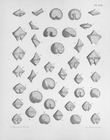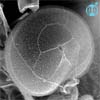WoRMS taxon details
Protoperidinium punctulatum (Paulsen, 1907) Balech, 1974
110248 (urn:lsid:marinespecies.org:taxname:110248)
accepted
Species
Peridinium punctulatum Paulsen, 1907 · unaccepted (synonym)
marine, terrestrial
Not documented
LSID urn:lsid:algaebase.org:taxname:46640
LSID urn:lsid:algaebase.org:taxname:46640 [details]
Guiry, M.D. & Guiry, G.M. (2024). AlgaeBase. World-wide electronic publication, National University of Ireland, Galway (taxonomic information republished from AlgaeBase with permission of M.D. Guiry). Protoperidinium punctulatum (Paulsen, 1907) Balech, 1974. Accessed through: World Register of Marine Species at: https://marinespecies.org/aphia.php?p=taxdetails&id=110248 on 2024-11-14
Date
action
by
Copyright notice: the information originating from AlgaeBase may not be downloaded or replicated by any means, without the written permission of the copyright owner (generally AlgaeBase). Fair usage of data in scientific publications is permitted.
context source (HKRMS)
Clark, A. M. (1982). Echinoderms of Hong Kong. <em>In: Morton B, editor. Proceedings of the first international marine biological workshop: The marine flora and fauna of Hong Kong and southern China. Hong Kong University Press, Hong Kong.</em> 1: 485-501. [details]
context source (Schelde) Maris, T.; Beauchard, O.; Van Damme, S.; Van den Bergh, E.; Wijnhoven, S.; Meire, P. (2013). Referentiematrices en Ecotoopoppervlaktes Annex bij de Evaluatiemethodiek Schelde-estuarium Studie naar “Ecotoopoppervlaktes en intactness index”. <em>Monitor Taskforce Publication Series, 2013-01. NIOZ: Yerseke.</em> 35 pp. (look up in IMIS) [details]
basis of record Brandt, S. (2001). Dinoflagellates, <B><I>in</I></B>: Costello, M.J. <i>et al.</i> (Ed.) (2001). <i>European register of marine species: a check-list of the marine species in Europe and a bibliography of guides to their identification. Collection Patrimoines Naturels,</i> 50: pp. 47-53 (look up in IMIS) [details]
additional source Guiry, M.D. & Guiry, G.M. (2024). AlgaeBase. <em>World-wide electronic publication, National University of Ireland, Galway.</em> searched on YYYY-MM-DD., available online at http://www.algaebase.org [details]
additional source Tomas, C.R. (Ed.). (1997). Identifying marine phytoplankton. Academic Press: San Diego, CA [etc.] (USA). ISBN 0-12-693018-X. XV, 858 pp., available online at http://www.sciencedirect.com/science/book/9780126930184 [details]
additional source Steidinger, K. A., M. A. Faust, and D. U. Hernández-Becerril. 2009. Dinoflagellates (Dinoflagellata) of the Gulf of Mexico, Pp. 131–154 in Felder, D.L. and D.K. Camp (eds.), Gulf of Mexico–Origins, Waters, and Biota. Biodiversity. Texas A&M Press, College [details]
additional source Liu, J.Y. [Ruiyu] (ed.). (2008). Checklist of marine biota of China seas. <em>China Science Press.</em> 1267 pp. (look up in IMIS) [details] Available for editors [request]
[request]
additional source Chang, F.H.; Charleston, W.A.G.; McKenna, P.B.; Clowes, C.D.; Wilson, G.J.; Broady, P.A. (2012). Phylum Myzozoa: dinoflagellates, perkinsids, ellobiopsids, sporozoans, in: Gordon, D.P. (Ed.) (2012). New Zealand inventory of biodiversity: 3. Kingdoms Bacteria, Protozoa, Chromista, Plantae, Fungi. pp. 175-216. [details]
additional source Balech, E. (1978). Microplancton de la campaña Productividad IV. <em>Revista del Museo Argentino de Ciencias Naturales "Bernardino Rivadavia" (Hidrobiología).</em> 5(7): 137-201, 9 pl. [details] Available for editors [request]
[request]
new combination reference Balech, E. (1974). El genero Protoperidinium Bergh 1881 (Peridinium Ehrenberg 1831, partim). <em>Revista del Museo Argentino de Ciencias Naturales "Bernardino Rivadavia" (Hidrobiología).</em> 4: 1-79. [details] Available for editors [request]
[request]
context source (Schelde) Maris, T.; Beauchard, O.; Van Damme, S.; Van den Bergh, E.; Wijnhoven, S.; Meire, P. (2013). Referentiematrices en Ecotoopoppervlaktes Annex bij de Evaluatiemethodiek Schelde-estuarium Studie naar “Ecotoopoppervlaktes en intactness index”. <em>Monitor Taskforce Publication Series, 2013-01. NIOZ: Yerseke.</em> 35 pp. (look up in IMIS) [details]
basis of record Brandt, S. (2001). Dinoflagellates, <B><I>in</I></B>: Costello, M.J. <i>et al.</i> (Ed.) (2001). <i>European register of marine species: a check-list of the marine species in Europe and a bibliography of guides to their identification. Collection Patrimoines Naturels,</i> 50: pp. 47-53 (look up in IMIS) [details]
additional source Guiry, M.D. & Guiry, G.M. (2024). AlgaeBase. <em>World-wide electronic publication, National University of Ireland, Galway.</em> searched on YYYY-MM-DD., available online at http://www.algaebase.org [details]
additional source Tomas, C.R. (Ed.). (1997). Identifying marine phytoplankton. Academic Press: San Diego, CA [etc.] (USA). ISBN 0-12-693018-X. XV, 858 pp., available online at http://www.sciencedirect.com/science/book/9780126930184 [details]
additional source Steidinger, K. A., M. A. Faust, and D. U. Hernández-Becerril. 2009. Dinoflagellates (Dinoflagellata) of the Gulf of Mexico, Pp. 131–154 in Felder, D.L. and D.K. Camp (eds.), Gulf of Mexico–Origins, Waters, and Biota. Biodiversity. Texas A&M Press, College [details]
additional source Liu, J.Y. [Ruiyu] (ed.). (2008). Checklist of marine biota of China seas. <em>China Science Press.</em> 1267 pp. (look up in IMIS) [details] Available for editors
additional source Chang, F.H.; Charleston, W.A.G.; McKenna, P.B.; Clowes, C.D.; Wilson, G.J.; Broady, P.A. (2012). Phylum Myzozoa: dinoflagellates, perkinsids, ellobiopsids, sporozoans, in: Gordon, D.P. (Ed.) (2012). New Zealand inventory of biodiversity: 3. Kingdoms Bacteria, Protozoa, Chromista, Plantae, Fungi. pp. 175-216. [details]
additional source Balech, E. (1978). Microplancton de la campaña Productividad IV. <em>Revista del Museo Argentino de Ciencias Naturales "Bernardino Rivadavia" (Hidrobiología).</em> 5(7): 137-201, 9 pl. [details] Available for editors
new combination reference Balech, E. (1974). El genero Protoperidinium Bergh 1881 (Peridinium Ehrenberg 1831, partim). <em>Revista del Museo Argentino de Ciencias Naturales "Bernardino Rivadavia" (Hidrobiología).</em> 4: 1-79. [details] Available for editors
 Present
Present  Present in aphia/obis/gbif/idigbio
Present in aphia/obis/gbif/idigbio  Inaccurate
Inaccurate  Introduced: alien
Introduced: alien  Containing type locality
Containing type locality
From editor or global species database
LSID urn:lsid:algaebase.org:taxname:46640 [details]Unreviewed
Diet general for group: both heterotrophic (eat other organisms) and autotrophic (photosynthetic) [details]Habitat pelagic [details]
Importance General: known for producing dangerous toxins, particularly when in large numbers, called "red tides" because the cells are so abundant they make water change color. Also they can produce non-fatal or fatal amounts of toxins in predators (particularly shellfish) that may be eaten by humans. [details]
Predators marine microorganisms and animal larvae [details]
Reproduction general for group: both sexual and asexual [details]
Synonymy M'Harzi (1999) mentioned Peridinium punctulatum, which is a synonym of this species according to Algaebase. [details]
PlanktonNet Image
Published in AlgaeBase
Published in AlgaeBase (from synonym Peridinium punctulatum Paulsen, 1907)
(from synonym Peridinium punctulatum Paulsen, 1907)
Published in AlgaeBase (from synonym Peridinium subinerme var. punctulatum (Paulsen) Jørgensen, 1912)
(from synonym Peridinium subinerme var. punctulatum (Paulsen) Jørgensen, 1912)
To Biodiversity Heritage Library (12 publications) (from synonym Peridinium punctulatum Paulsen, 1907)
To Biodiversity Heritage Library (3 publications)
To Dyntaxa
To European Nucleotide Archive, ENA (Protoperidinium punctulatum)
To GenBank (16 nucleotides; 0 proteins)
To GenBank (16 nucleotides; 0 proteins) (from synonym Peridinium punctulatum Paulsen, 1907)
To PESI
To ITIS
Published in AlgaeBase

Published in AlgaeBase
 (from synonym Peridinium punctulatum Paulsen, 1907)
(from synonym Peridinium punctulatum Paulsen, 1907)Published in AlgaeBase
 (from synonym Peridinium subinerme var. punctulatum (Paulsen) Jørgensen, 1912)
(from synonym Peridinium subinerme var. punctulatum (Paulsen) Jørgensen, 1912)To Biodiversity Heritage Library (12 publications) (from synonym Peridinium punctulatum Paulsen, 1907)
To Biodiversity Heritage Library (3 publications)
To Dyntaxa
To European Nucleotide Archive, ENA (Protoperidinium punctulatum)
To GenBank (16 nucleotides; 0 proteins)
To GenBank (16 nucleotides; 0 proteins) (from synonym Peridinium punctulatum Paulsen, 1907)
To PESI
To ITIS





